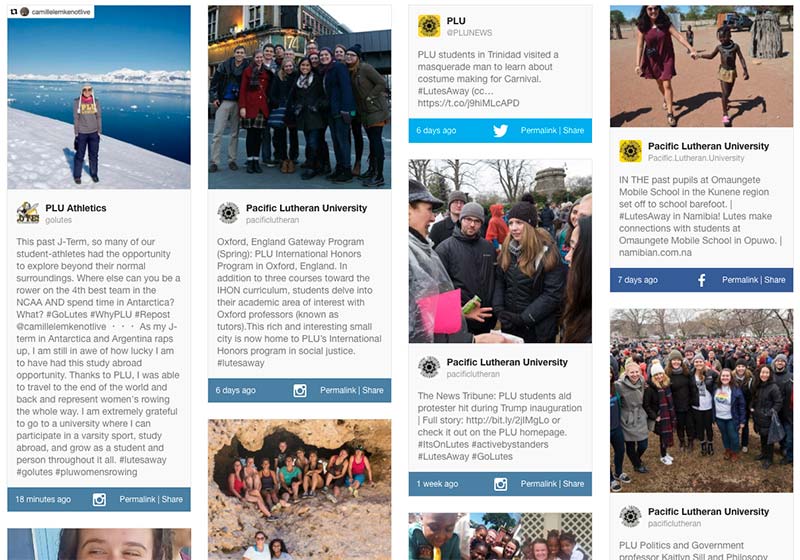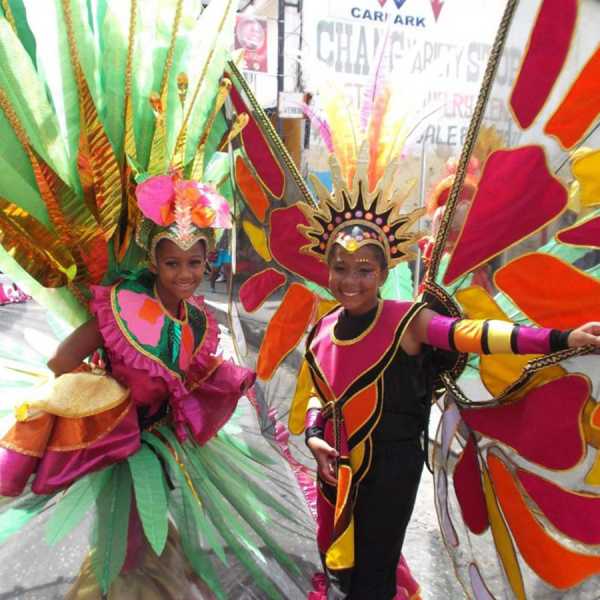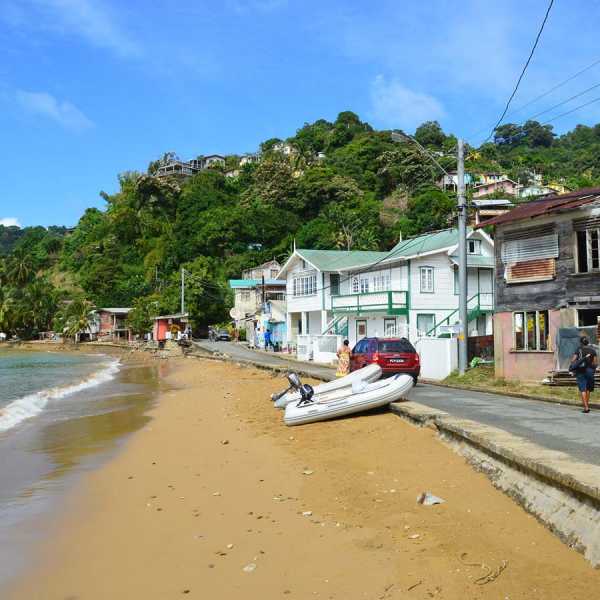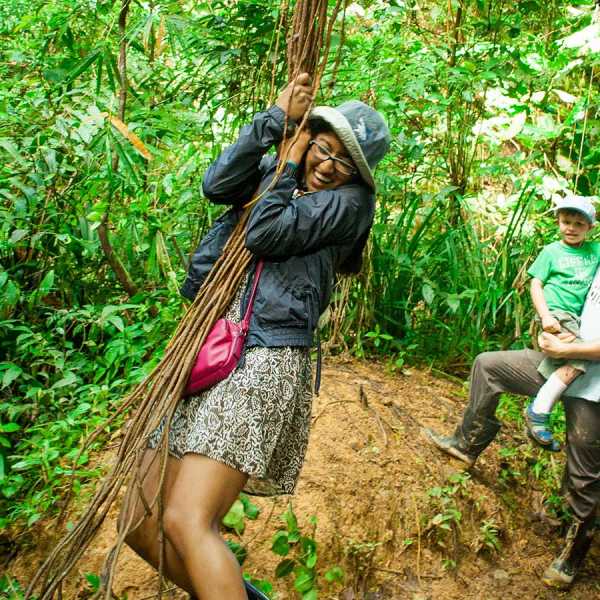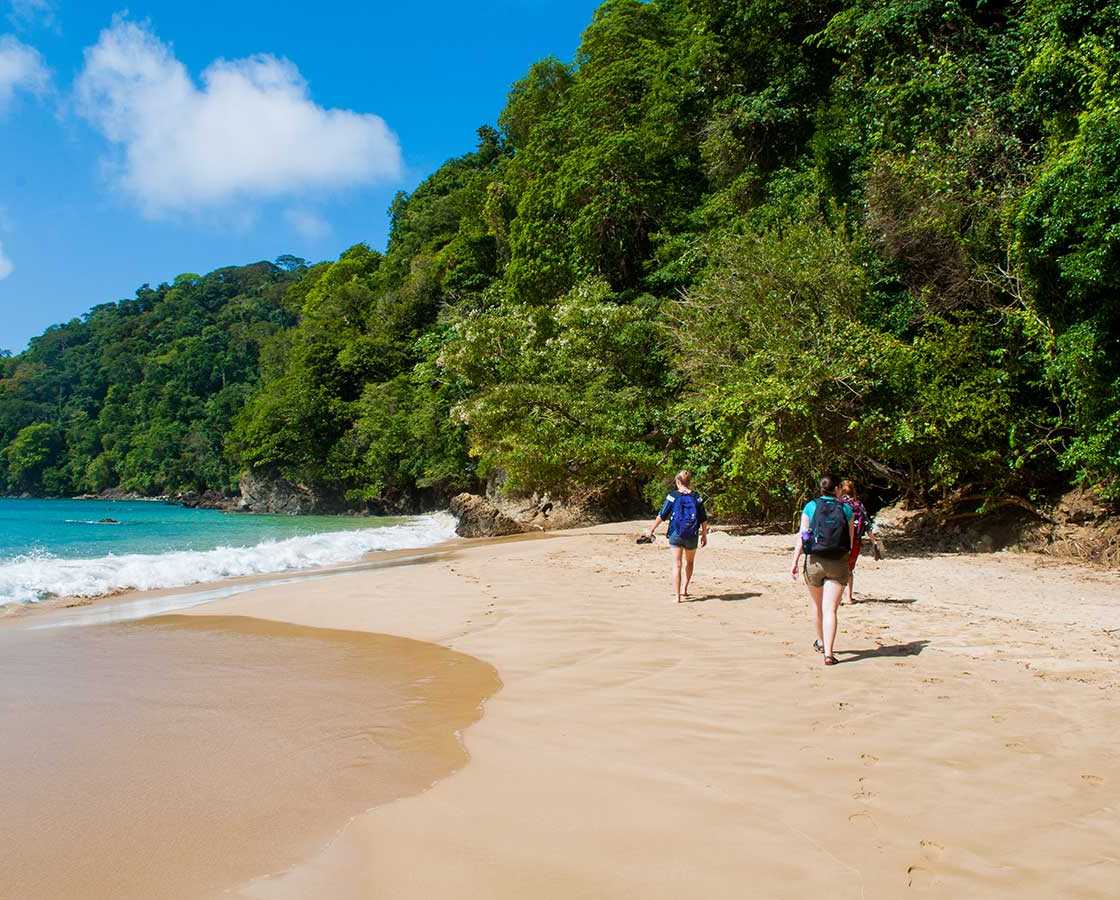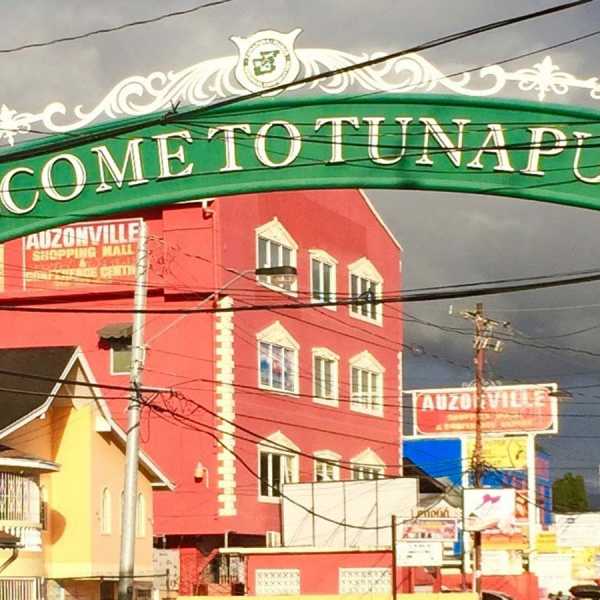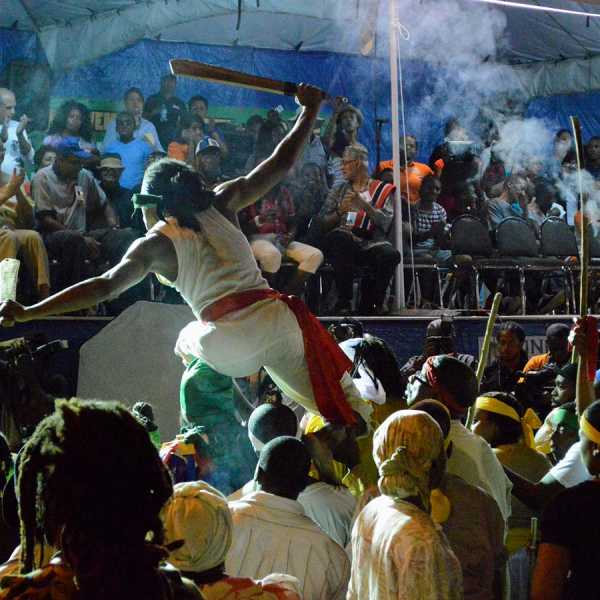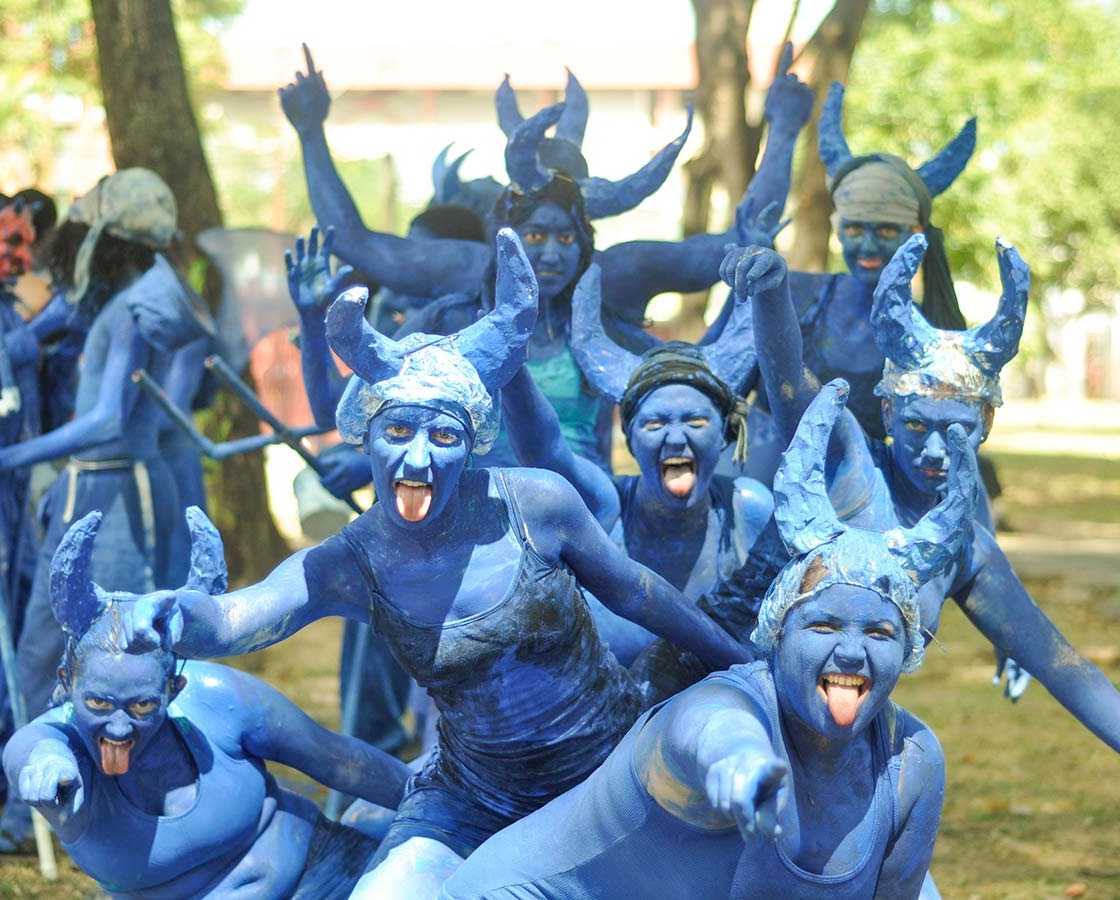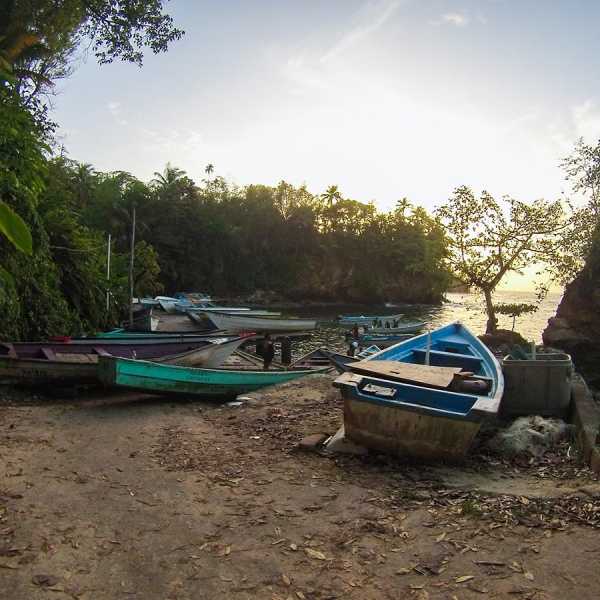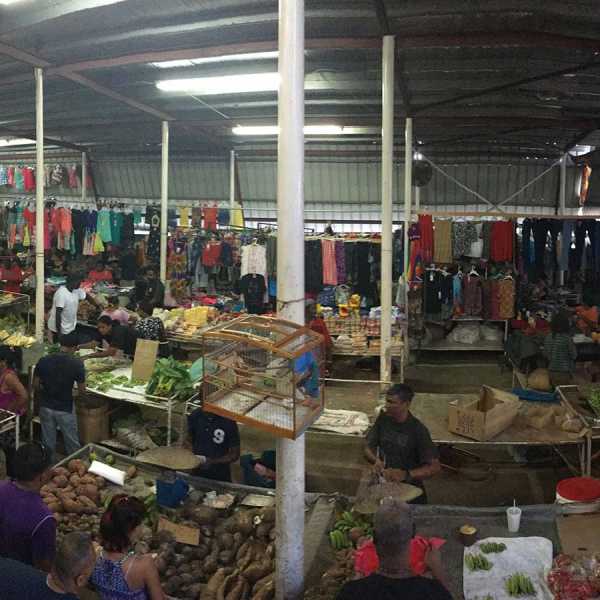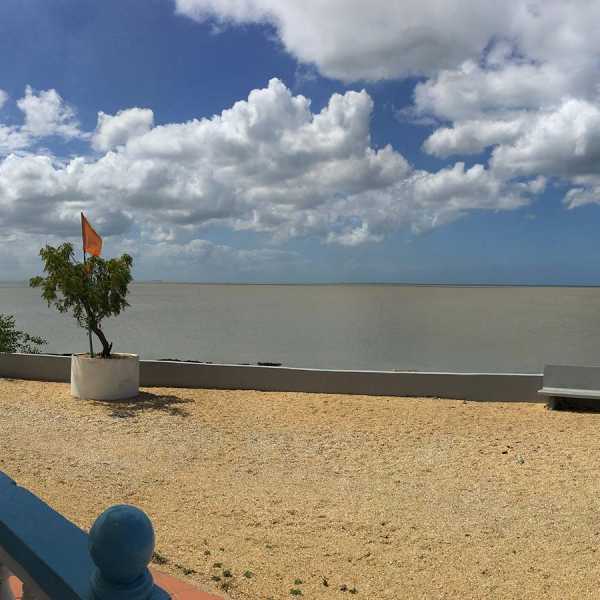Immersive multicultural experience teaches Lutes to celebrate difference
Candice Hughes ’08 grew up in Sangre Grande, the largest town in northeastern Trinidad, part of the twin-island Caribbean nation Trinidad and Tobago. All things considered, she knew her home well.
But in 2004, her perspective changed.
With the help of a government-funded scholarship, she enrolled alongside Pacific Lutheran University students who were studying away at the University of the West Indies at St. Augustine, less than an hour from where she was raised. Immersed as a local in PLU’s program, she started seeing her home through new eyes.
“The government saw lots of foreigners were coming here and learning about our country and our history, in a deeper way than even locals,” Hughes said, on a warm and breezy day in the Caribbean last year. “So, they decided to put locals in the program with the PLU students.”
That’s when Hughes started to look beyond her rudimentary understanding of Trinidadian traditions she thought she knew so well.
“When you live in a place, you don’t question things,” Hughes said. “Before I got involved in this program, I didn’t even know half of this stuff.”
That stuff, Hughes and others say, transforms those who experience it. Students meet the “living legends” who have mastered steelpan and calypso music. They experience the revival of the cocoa industry and get an intimate look at the planning behind exuberant events such as Carnival and Panorama.
And, most importantly, they dive into deep questions about identity, race, gender, colonialism and other complexities.
“It’s a growing and learning experience,” said Maya Bamba ’18, who participated in the program spring 2016. “You will come back a different person, whether you realize it or not.”
Hughes is still experiencing growth, through the eyes of current Lutes. She’s the on-site program coordinator, based near the University of the West Indies, located just outside Port of Spain.
“Candice is a living example of a PLU education living out in the world,” said Greg Youtz, Trinidad program director and professor of music. “It’s a dream team we have working with us in Trinidad.”
Hughes acknowledges that many students are attracted to the program because of Carnival, an annual celebration rich with music, dancing, costumes and more that Hughes says “engulfs the whole country.” But the semester abroad provides students with deeper meaning behind the elaborate festival.
“They go beyond just having a good time,” she said.
Among the cultural education, students experience how people from a wide array of religious and ethnic backgrounds live side by side in a small, tight-knit community.
“Candice is a living example of a PLU education living out in the world. It’s a dream team we have working with us in Trinidad.”
– Greg Youtz
“The program allows students an opportunity they may not have anywhere else, to really immerse themselves in a multicultural, multi-ethnic, multireligious society,” Hughes said. “There’s all this cultural activity happening in different pockets. We don’t just tolerate each other. We celebrate each other’s differences.”
A shift in consciousness
Several months and thousands of miles away from Hughes, Barbara Temple-Thurston punctuated those remarks, as though the two sat next to each other in the retired professor’s North Tacoma living room.
Temple-Thurston says Trinidad is what her native South Africa should have been. As symptoms of apartheid continue to plague her homeland, the beloved Caribbean island she considered a part-time home for two decades embraces widespread difference.
“Trinidadians have such a beautiful attitude toward race,” she said. “It’s not segregated at all. Everybody knows everybody. There’s tolerance of everybody’s difference. And they’re proud of it.”
That attitude inspired Temple-Thurston to start the study away program, which she coordinated for most of the 25 years she taught at PLU. It’s one of the oldest semester-long Gateways, programs rooted in long-term partnerships between the university and regions around the world.
While people in the United States often experience acute segregation, apprehension to discuss racial difference and fear of white guilt, Temple-Thurston said, Trinidad is the antithesis.
“I wanted a shift in their racial consciousness,” she said of students who travel there.
The diversity-interested program was the first of its kind to arrive in Trinidad and Tobago. It intentionally thrusts students into the thick of cultural diversity.
“Trinidadians say it like it is,” Temple-Thurston said. “It changes our students profoundly.”
It wasn’t enough for students to attend the university, however. Temple-Thurston wanted them immersed in the community — one foot on campus, one in the folk culture.
Trini native John Cupid was the key to successful immersion, she said. He contacted Temple-Thurston out of the blue, when he learned she was developing the program. His local connections led to rich experiences off campus and eventually improved the cultural competence of the University of the West Indies, as well.
TRINIDAD AND TOBAGO — CARIBBEAN
This program provides students a unique opportunity to explore the islands and the varied heritage of this multicultural society.
“Mr. Cupid was the one who knew where real stuff happened,” Temple-Thurston said.
With so many cultural groups on the island, students also were encouraged to complete a diverse array of weeklong homestays, so they could sample different walks of life.
The practice continues today. It’s the students’ first glimpse of the warm, intimate culture they quickly grow to love.
“Different students go to different homes,” Temple-Thurston said, from wealthy Afro-Trinidadian families to extremely religious Hindu households.
Youtz said the guest house where students live throughout the semester builds upon that slice-of-life experience. Located in Tunapuna, it’s situated two blocks from the popular market of the same name. The atmosphere is alive, vibrant and authentic, Youtz says.
“A great deal of what students get out of Trinidad is beyond the classroom,” Youtz said. “It isn’t fancy, but it’s real.”
That vision helps students learn about themselves in profound ways once they return to the U.S. “Students often realize they are no longer the person they were when they left,” he said.
Bringing the island home
Eventually, Temple-Thurston and others realized bringing Lutes to Trinidad was half the equation. They wanted to complete the cultural exchange.
“We are getting so much from this culture,” Temple-Thurston recalled telling herself. “We must give back in some way.”
So, locals in Trinidad, the country’s minister of culture and the PLU administration collaborated to bring students from Trinidad to the Parkland campus. About nine students at a time have attended PLU thanks to the government-funded program. Hughes was the first to seize the opportunity.
Temple-Thurston said it allowed students there to earn a degree while also bringing a new cultural perspective — and that valuable racial consciousness — to campus. The program lasted about five or six years. It ended as a result of constant government turnover in Trinidad, she said.
While the program was active, Hughes said many of her fellow Trinidadians followed her lead, bringing island flavor to the Pacific Northwest.
“We formed a Trini posse and took the campus by storm,” she said, with a grin.
The new cultural presence on campus included starting a PLU edition of Carnival, which included a parade of lively dancing, singing and costuming.
Still, nothing compares to the real thing. In Trinidad, PLU students don’t just attend Carnival — they’re an intimate part of it.
“Here you’re actually participating,” said Bamba, who learned traditional stick fighting during her time abroad last year. “You get to be a part of it instead of just observing.”
Youtz said Carnival is a collective statement about Trinidad’s history and culture — an “astonishing explosion of human creativity.” Students learn traditional choreography, choose their own costumes and think through the meaning behind them. One year, PLU and its students were featured for nearly 10 minutes during the national broadcast.
“People are blown away,” Hughes said. “Because students are able to go beyond that tourist view of Trinidad and Tobago, locals are willing to open up to them. It’s a partnership that’s formed.”
As a result, learning goes beyond lectures in a classroom at the university. It includes seeking out the “living legends,” as Hughes calls them, learning from the personal experience of those who have witnessed the cultural traditions as they’ve formed.
The list of legends includes world-renowned authors, calypso artists, Carnival designers and more.
Shelondra Harris ’17 said it’s amazing to be a part of such a spectacular event and have the opportunity to meet local celebrities and leaders.
“It’s really cool that the program allows us to have these interactions,” she said during her time in Trinidad. “Everyone you meet, whether they are a historian or a person on the street, they know some bit about their history.”
Additionally, students participate in internships at orphanages, schools and more. “Students in the Trinidad program are very busy,” Youtz said.
Still, the schedule includes some downtime. “Of course, we organize trips to the beach,” he said. “All the Caribbean paradise stuff is there.”
Temple-Thurston says that’s the epitome of local living in Trinidad. “Trinis work hard and they play hard,” she said. “They’re no slouches.”
Temple-Thurston said Trinidad is the perfect place to jumpstart global education, which she says allows people “to love so much more richly and openly.”
“It will open your heart, your mind and your consciousness in ways that’s hard for you to imagine at this point,” she said. “It makes you see your culture through new eyes.”
Hughes hopes that fellow Lutes who return from Trinidad will be inspired to learn more about their own cultures — just as she did. Perhaps they will take that first trip to Mount Rainier, or explore corners of their community they never knew existed.
“You return with that vigor,” she said. “That vigor of understanding your own self, understanding your own community, understanding your own country.”
As for the students who have yet to open that door, Hughes says, Trinidadians are waiting.
“Everybody knows PLU’s coming,” she said. “They are expecting us.”


